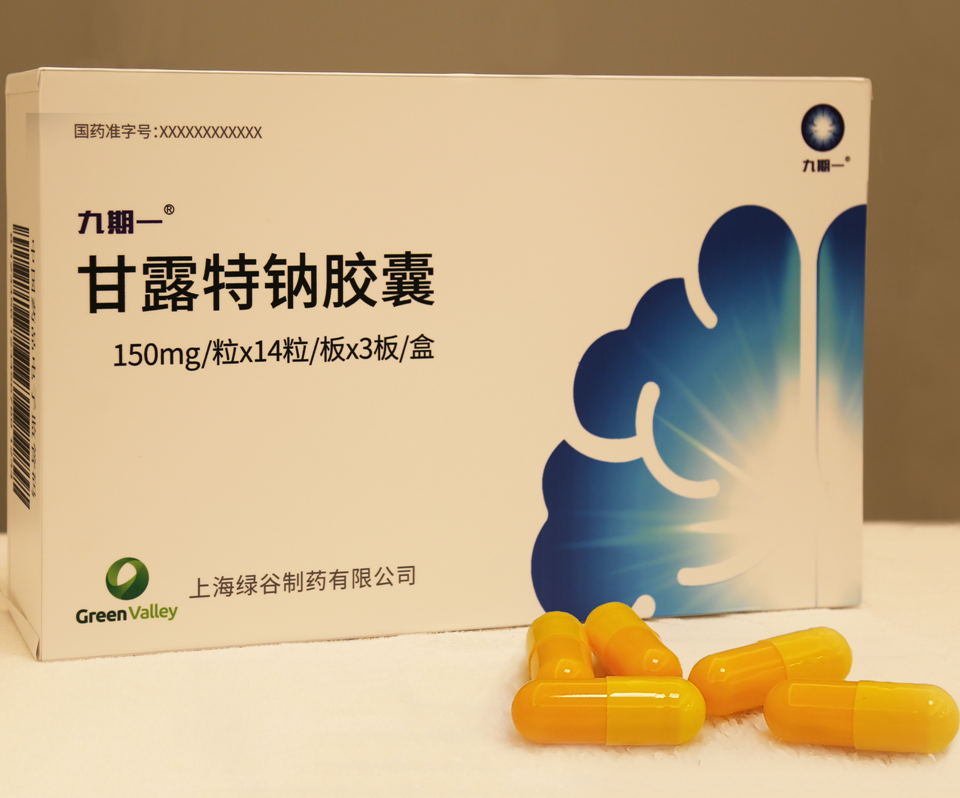


GV-971, the home-grown drug treating Alzheimer's disease. [Photo provided to chinadaily.com.cn]
Extracted from brown algae, medicine is first new treatment option in 17 years
A Chinese drug that is the world's first innovative therapy for the treatment of Alzheimer's disease in 17 years became available domestically on Sunday.
Extracted from brown algae, GV-971 can treat mild to moderate forms of the disease and improve cognition, China's National Medical Products Administration said. It announced approval of the drug on Nov 2.
The drug provides new choices to patients with Alzheimer's, and continued research will be conducted on its long-term effects and safety, the administration said.
Alzheimer's disease, which mostly affects elderly people, is an incurable, irreversible and progressive brain disorder that slowly destroys memory, thinking ability and the capability to carry out simple tasks.
There are at least 50 million Alzheimer's patients worldwide, including more than 10 million in China. The numbers are expected to increase to 150 million worldwide and 40 million in China by 2050, which will impose great burdens on society.
Zhang Xiaodong, vice-president of the Chinese Pharmaceutical Association, said the drug is the only Alzheimer's medicine out of a number of drugs developed by pharmaceutical companies around the globe to have survived clinical trials over the past two decades, despite the investment of hundreds of billions of US dollars.
"Worldwide, progress in the research and development of drugs for the disease has been very slow, and the needs of patients are increasingly urgent," he said.
Lyu Songtao, chairman of Shanghai Green Valley Pharmaceuticals, one of the drug's developers, said the drug will cost about 40,000 yuan ($5,700) for a patient a year.
"We will try to include it in the basic medical insurance program so it will be reimbursable, so the drug will be affordable to most patients," he said.
The Chinese Academy of Sciences' Shanghai Institute of Materia Medica, and Ocean University of China joined in the research and development of the drug.
Zhang Zhenxin, a professor in neurology at Peking Union Medical College Hospital and a leading participant in the third-phase trial of the drug, said many patients taking part in the trial had shown great improvement in their cognitive abilities, and some improvement even persisted after they stopped using the drug.
"We expect to have further research on the drug after its availability in the market, to explain more clearly how the drug works," she said.
Shanghai Green Valley Pharmaceuticals also announced on Sunday that it will invest $3 billion for further research on the drug, including conducting clinical research involving more than 2,000 Alzheimer's patients in 200 clinical research centers overseas, including North America, the European Union and the Asia-Pacific region.
The research will show the drug's safety and efficiency in people of different races, it said. The international clinical trials may finish in 2024, paving the way for its approval overseas, the company said.

 Award-winning photos show poverty reduction achievements in NE China's Jilin province
Award-winning photos show poverty reduction achievements in NE China's Jilin province People dance to greet advent of New Year in Ameiqituo Town, Guizhou
People dance to greet advent of New Year in Ameiqituo Town, Guizhou Fire brigade in Shanghai holds group wedding
Fire brigade in Shanghai holds group wedding Tourists enjoy ice sculptures in Datan Town, north China
Tourists enjoy ice sculptures in Datan Town, north China Sunset scenery of Dayan Pagoda in Xi'an
Sunset scenery of Dayan Pagoda in Xi'an Tourists have fun at scenic spot in Nanlong Town, NW China
Tourists have fun at scenic spot in Nanlong Town, NW China Harbin attracts tourists by making best use of ice in winter
Harbin attracts tourists by making best use of ice in winter In pics: FIS Alpine Ski Women's World Cup Slalom
In pics: FIS Alpine Ski Women's World Cup Slalom Black-necked cranes rest at reservoir in Lhunzhub County, Lhasa
Black-necked cranes rest at reservoir in Lhunzhub County, Lhasa China's FAST telescope will be available to foreign scientists in April
China's FAST telescope will be available to foreign scientists in April